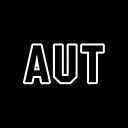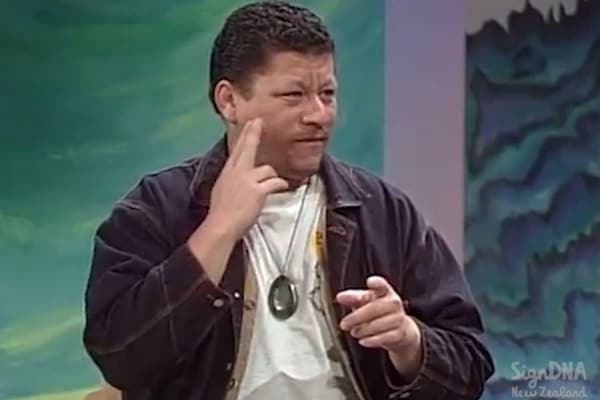
1996
video – Taonga source: Television New Zealand Archive
Patrick Thompson discusses upcoming wānanga for Māori Deaf
Patrick Thompson is interviewed on the ‘Marae’ programme, a bilingual Māori and English language current affairs show, about setting up a wānanga to enable Māori Deaf to access te reo Maori and Tikanga Maori.


1957
video – Taonga source: Susan Hamilton
Parent’s Day at Titirangi School for Deaf (1957)
Annual Parent’s Day at Titirangi School for Deaf, where students show their parents around the school and put on a performance – dancing, tītītōrea (short stick games) with end-of-year prizes.
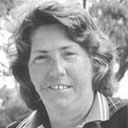
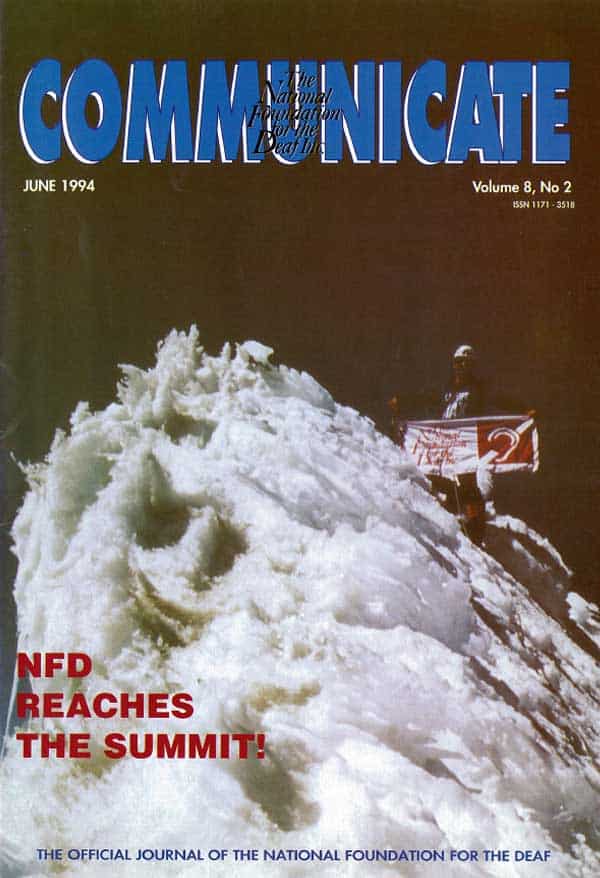
1994
publication – Taonga source: National Foundation for Deaf and Hard of Hearing
NFD Communicate: June 1994

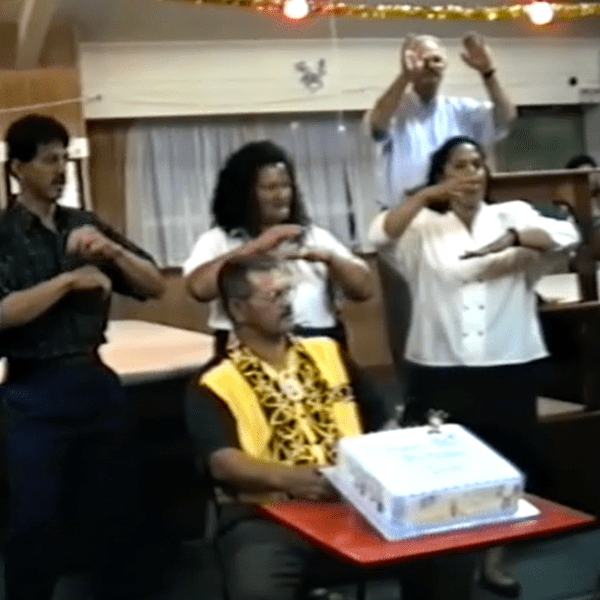
1990s
video – Taonga source: Hilda Tamepo
Deaf kaumatua celebrates 50 years of life at Auckland Deaf Society
The 50th birthday of Ivan Tamepo - a respected Deaf elder – is celebrated at ADS, with a karanga, powhiri, waitaia and celebrations in the back hall and upstairs clubroom.
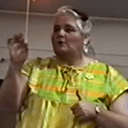
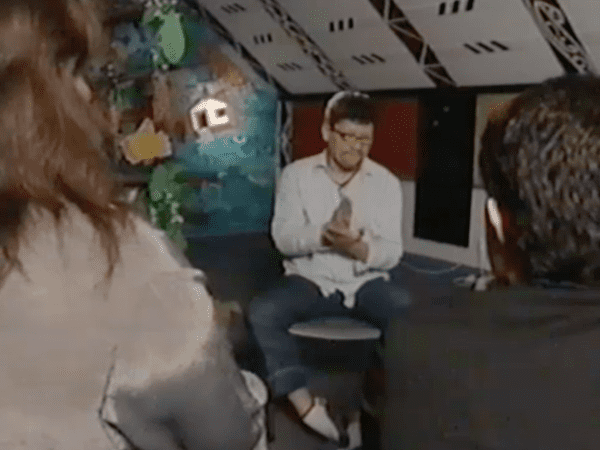
2004
video – Taonga source: Rūaumoko Komiti
Being Māori Deaf: Interview with Patrick Thompson
Raw footage of an interview with Patrick Thompson attempting to connect with a Māori culture he was denied growing up. Patrick provides a voice for Māori Deaf, to grow understanding about the challenges they face, and to promote the importance of NZSL.
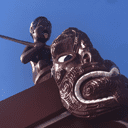
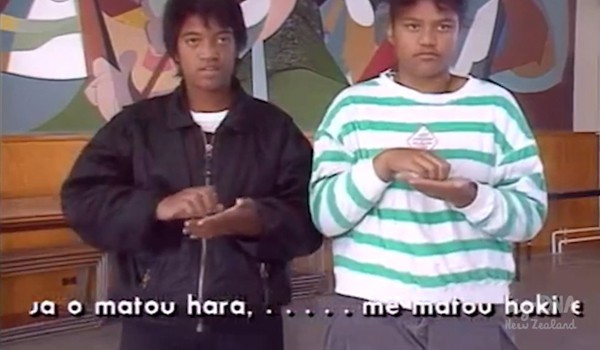
1991
video – Taonga source: Television New Zealand Archive
Two Deaf children sign a karakia
A karakia, the Lord’s Prayer, is given by two Deaf children using NZSL for the ‘Marae’ television series. This clip also contains Māori captions of the te reo Māori lyrics.

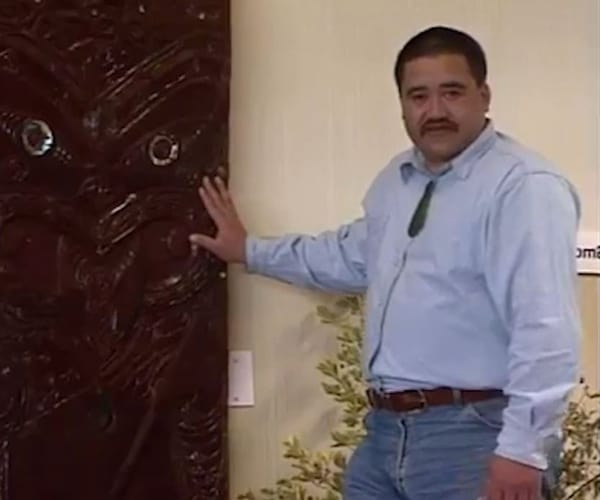
1995
video – Taonga source: Television New Zealand Archive
Michael Wi, Māori Deaf
Michael Wi, is profiled on ‘Marae’, where he shares his experience of growing up as Māori Deaf in a paheka-centric education environment, and learning as an adult about tikanga Māori, and marae protocols.

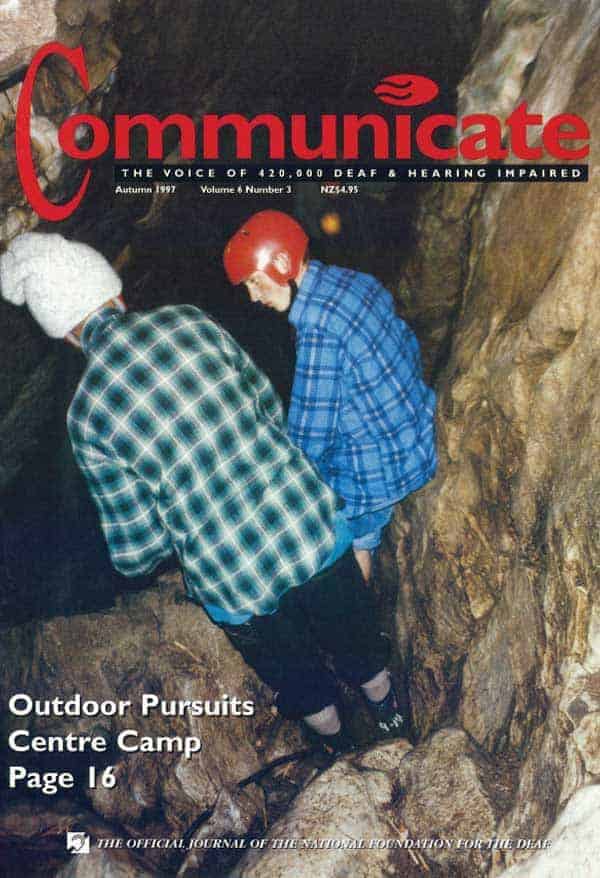
1997
publication – Taonga source: National Foundation for Deaf and Hard of Hearing
NFD Communicate: Autumn 1997

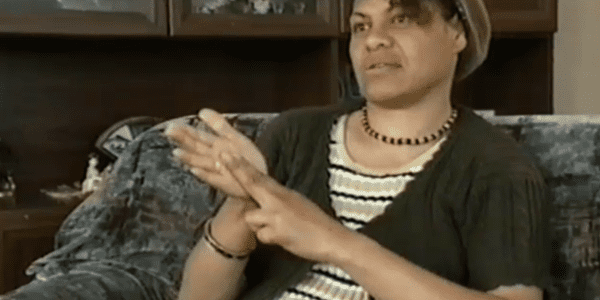
2004
video – Taonga source: Rūaumoko Komiti
Connecting with Māori culture: an interview with Joanne Klaver
Raw footage of an interview with solo mother Joanne Klaver, attempting to connect with a Māori culture she was denied growing up, and one of her two sons, Charles, who is also Deaf.

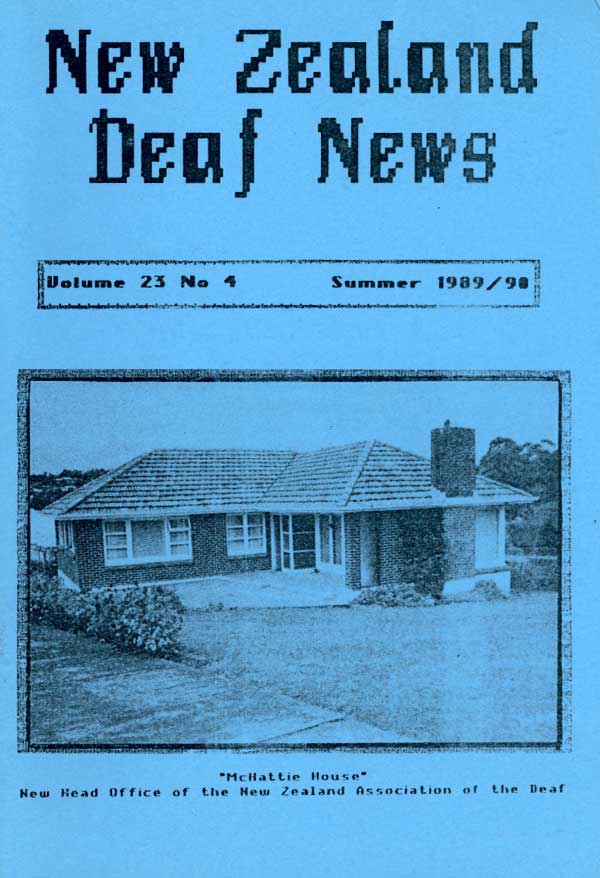
1989-90
publication – Taonga source: New Zealand Deaf News
NZ Deaf News: Summer 1989/90 (Vol. 23, No. 4)
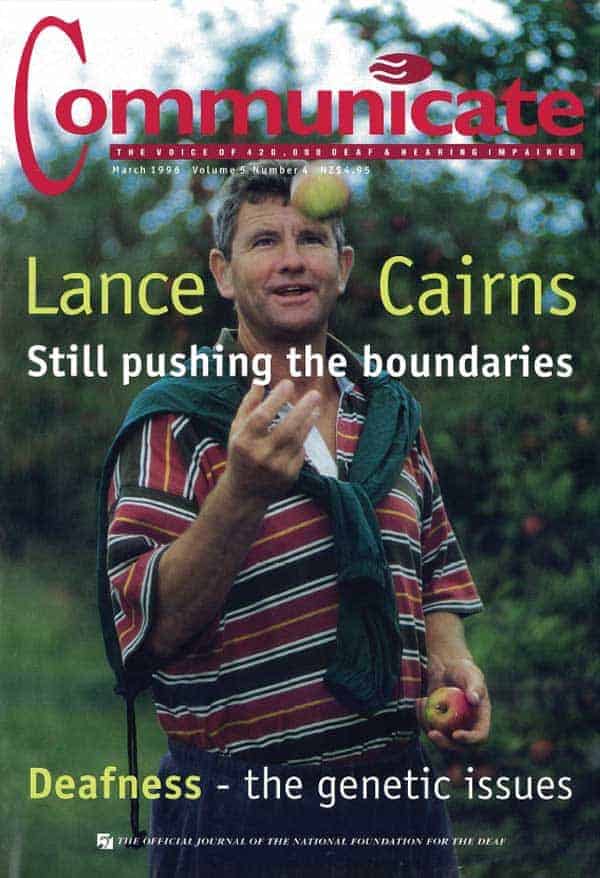
1996
publication – Taonga source: National Foundation for Deaf and Hard of Hearing
NFD Communicate: March 1996

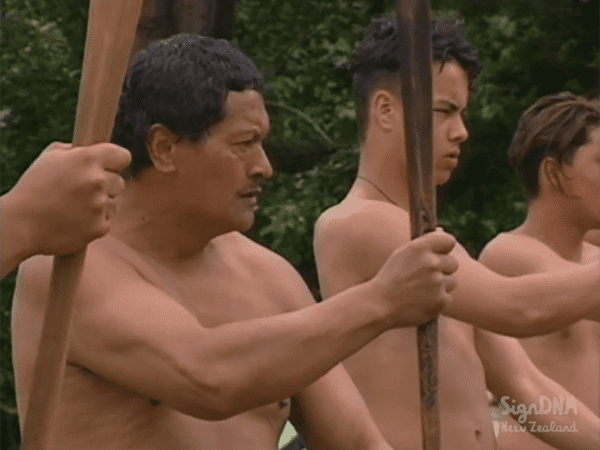
1996
video – Taonga source: Television New Zealand Archive
John Rua participates in a taiaha course
John Rua participates in an annual taiaha course and as a participant, he leads a pōwhiri, welcoming the visitors. ‘Te Karere’ visits the course to film John and find out more from his course instructors.

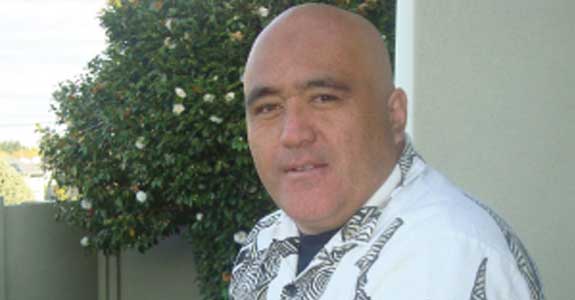
2013
article – Taonga source: Kōkiri Magazine
Māori Deaf Gather
Last year on Queen’s Birthday weekend, Hamilton man Hemi Hema was honoured for his tireless work advocating for opportunities for Māori Deaf. This Queen’s Birthday weekend he was showing that his great work continues – facilitating a hui for Māori Deaf from throughout Aotearoa aimed at focusing on new beginnings for their community.

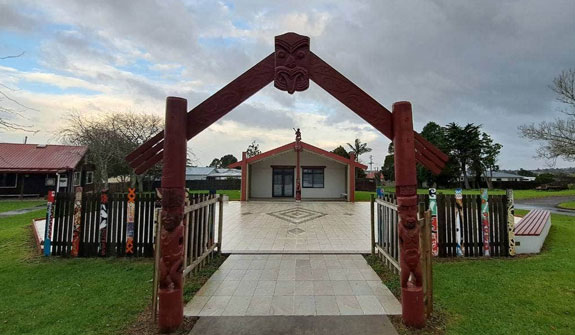
2022
article – Taonga source: Stuff
Aotearoa’s first Deaf marae celebrates 30 years of empowering Turi Māori
Friday marks 30 years since the opening of the country’s first marae for Deaf and hard of hearing Māori. Since 1992, Rūaumoko Marae, in West Auckland’s Kelston, has been a place where Deaf students can learn about te ao Māori.

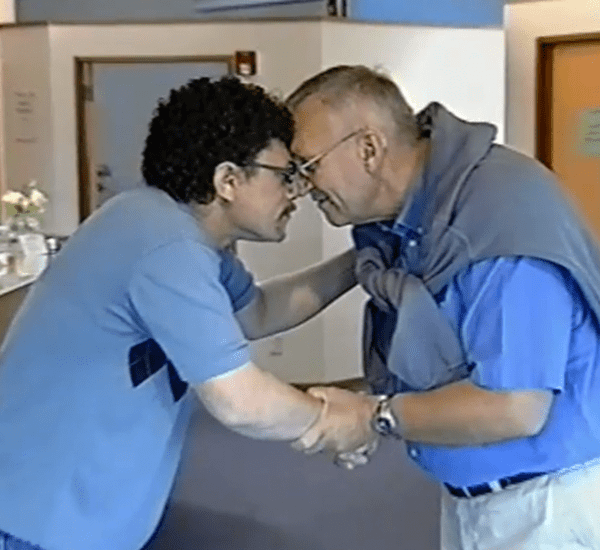
2002
video – Taonga source: Sara Pivac Alexander
International Postcard: New Zealand
DeafTV from Denmark makes a trip to New Zealand to feature the country and its Deaf community on its ‘International Postcard’ series, with scenes from a normal Friday night at the Deaf Club, a trip to the Deaf Association office. The Deaf Danish crew are also welcomed onto the Rūaumoko Marae.

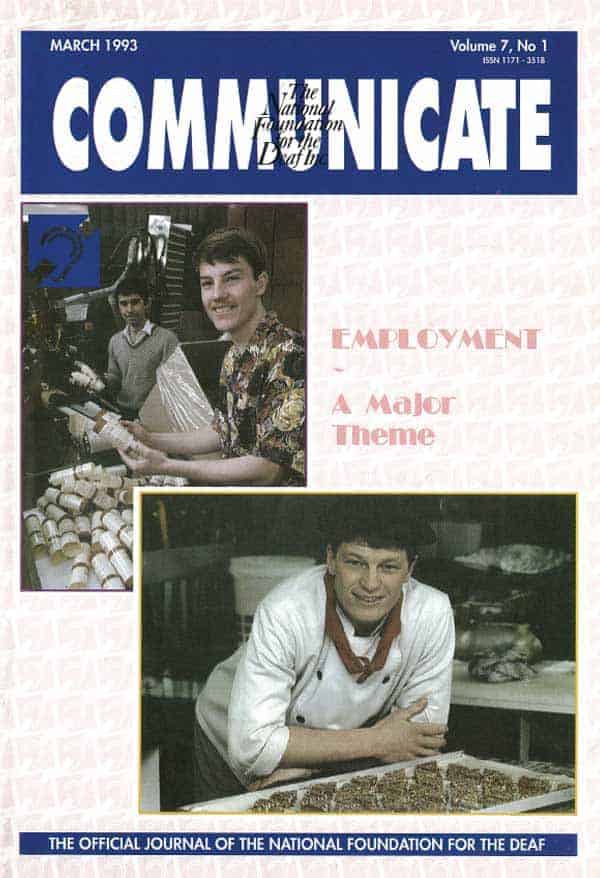
1993
publication – Taonga source: National Foundation for Deaf and Hard of Hearing
NFD Communicate: March 1993

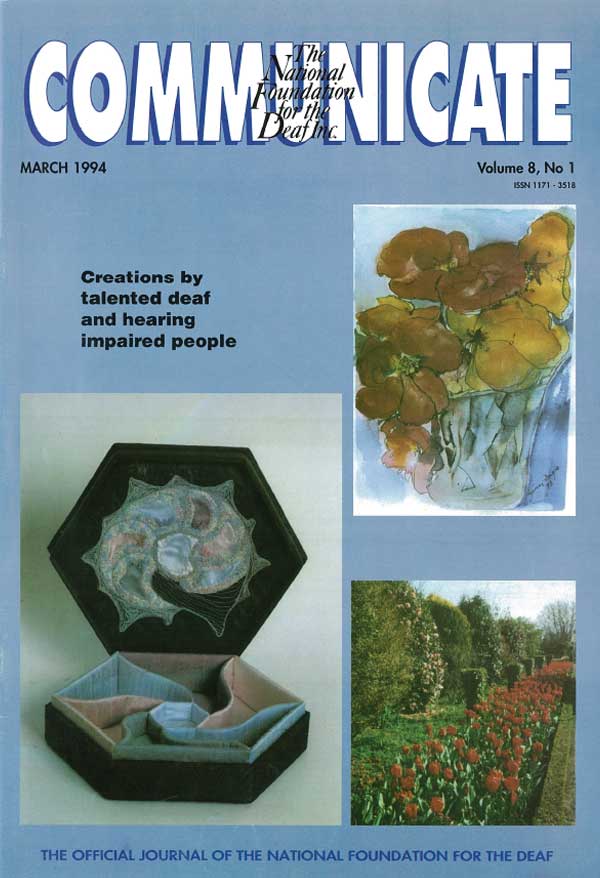
1994
publication – Taonga source: National Foundation for Deaf and Hard of Hearing
NFD Communicate: March 1994

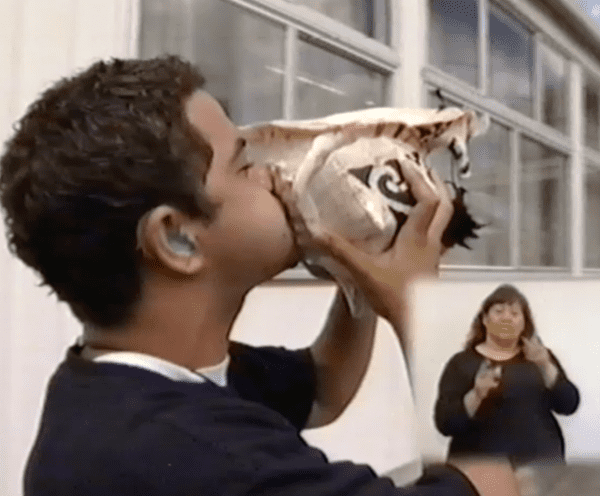
2004
video – Taonga source: Rūaumoko Komiti
The experiences of Māori Deaf
This segment from Māori TV’s Te Hēteri focuses on the experiences of Māori Deaf, catching up with Patrick Thompson, Whiti Ronaki, and Hemi Hema.

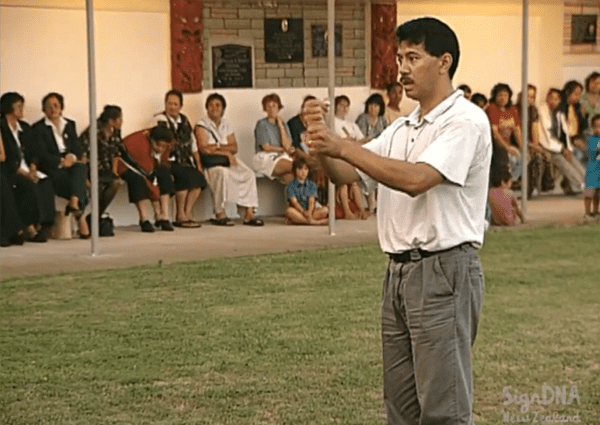
1997
video – Taonga source: Television New Zealand Archive
Hunga Turi: Māori Deaf have their first accessible stay on a marae
‘Te Karare’ was present to witness members of the Māori Deaf community have their first accessible stay on Kokohinau marae.

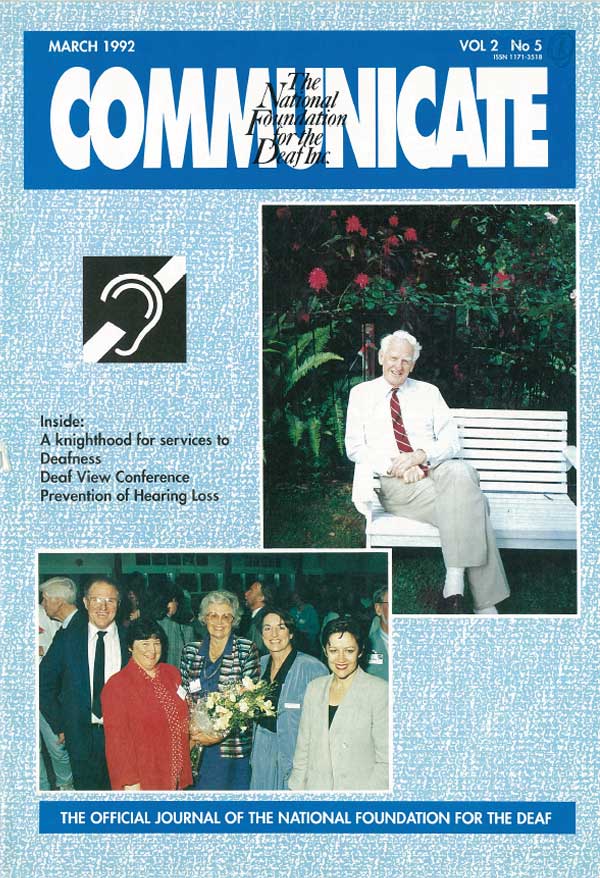
1992
publication – Taonga source: National Foundation for Deaf and Hard of Hearing
NFD Communicate: March 1992

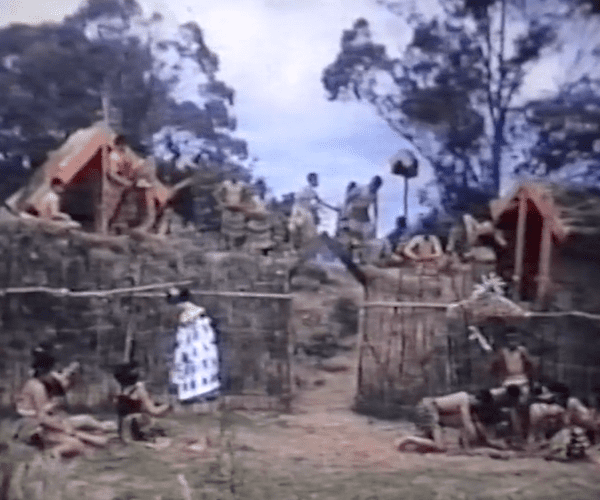
1959
video – Taonga source: Susan Hamilton
Extended version: Te Pakanga o Whau performs at the opening ceremony of Kelston
The opening of Kelston on a site in Archibald Road featured the infamous ‘Te Pakanga o Whau’ (The Battle of Whau) in 1959 where 86 deaf students acted in an outside play featuring a Māori-Pakeha battle near a big gum tree field.

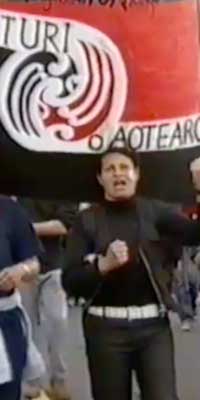
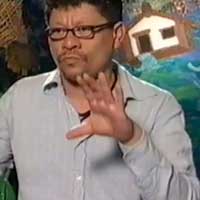
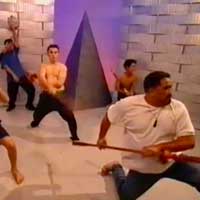
Collection
Collection
Rūaumoko Komiti – Turi Māori
Tihei mauri ora! Turi Māori are here! SignDNA is proud to present the Turi Māori collection of historic video taonga. The majority of the content of the Turi Māori collection was donated by the Rūaumoko Komiti, with invaluable footage of wānanga, hikoi, and other important korero.


1999
video – Taonga source: Rūaumoko Komiti
Mai Time features NZSL!
Mai Time made one of their episodes accessible in NZSL to mark Deaf Awareness Week 1999. KDEC’s sign singing choir and Patrick Thompson made an appearance along with as did Rūaumoko Marae’s kapa haka roopu.

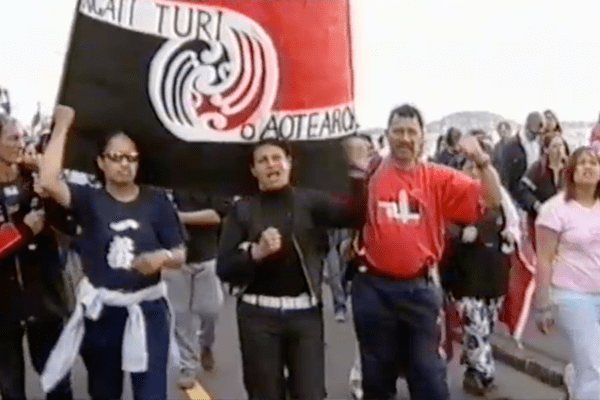
2004
video – Taonga source: Rūaumoko Komiti
Māori Deaf join foreshore hīkoi
Māori Deaf participating in a hīkoi (protest march) in support of Māori claims of ownership of the New Zealand foreshore and seabed.

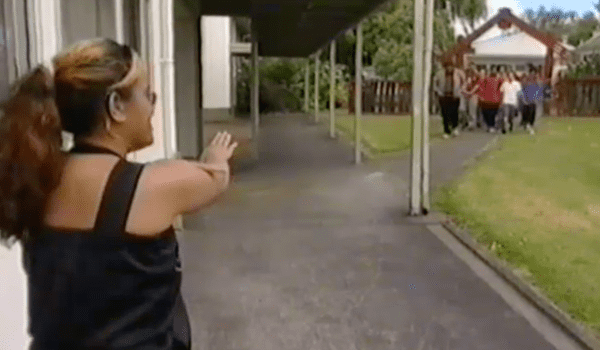
2004
video – Taonga source: Rūaumoko Komiti
A Day in the Life of Rūaumoko Marae
Insight into the preparations that go into a powhiri onto Rūaumoko Marae, and rare footage of the powhiri itself, followed by an interview with Patrick Thompson.

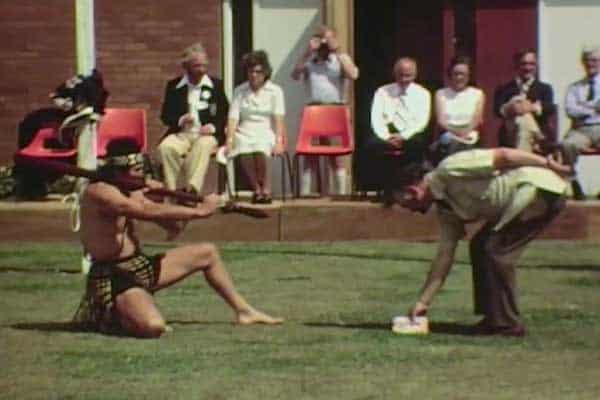
1979
video – Taonga source: Manawatu Deaf Society
Trans-Tasman Games hosted in Christchurch, 1979
Opening ceremony of the Trans-Tasman Games, Including a traditional Maori welcome for the Australian team.
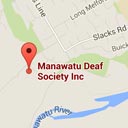
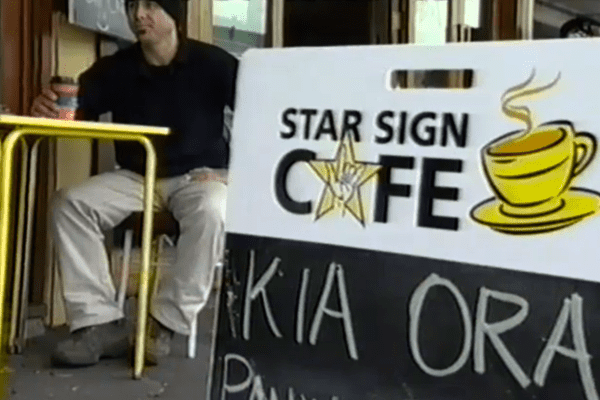
2004
video – Taonga source: Rūaumoko Komiti
Patrick Thompson’s ‘Te Hēteri’ interview – unedited footage
Unedited footage of Patrick Thompson’s ‘Te Hēteri’ interview at the famed Star Sign Cafe on Auckland’s Dominion Road in 2004.


1959
video – Taonga source: Susan Hamilton
Sports Day at Kelston School for the Deaf
The School for Deaf annual sports day is held at Kelston with athletics, long jumping, relay races and performances.


2000
video – Taonga source: Deaf Aotearoa
Deaf Association of New Zealand 2000
A look at the work of the New Zealand Association of the Deaf, presented by Judy Bailey.
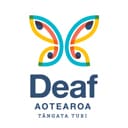
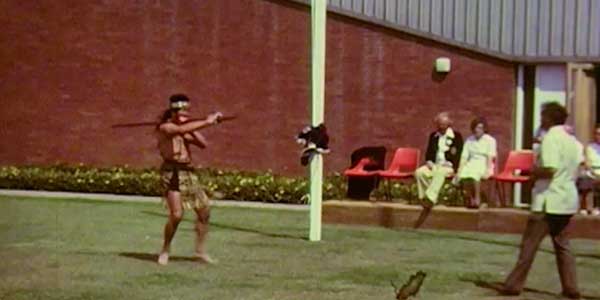
1979
video – Taonga source: Sue Penman
Trans-Tasman Deaf Games: Opening Ceremony and sports
Coverage of the Trans-Tasman Deaf Games, Lincoln College, Christchurch, 10 January 1979, including opening ceremony and various sports.
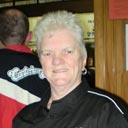
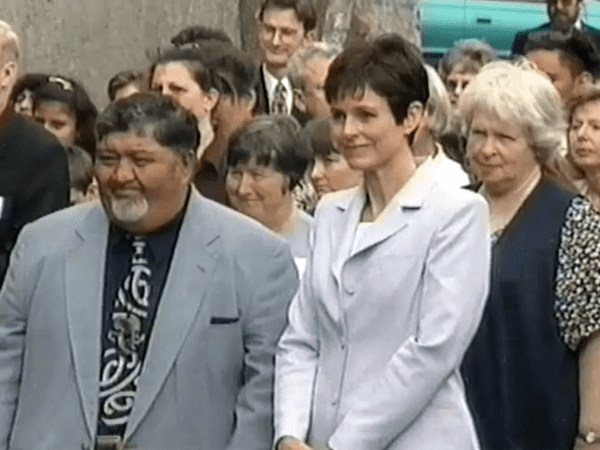
1999
video – Taonga source: Rūaumoko Komiti
Deaf Association opens its new Auckland office
The Deaf Association of New Zealand opens its new offices on Great North Road, Avondale, Auckland in November 1999.

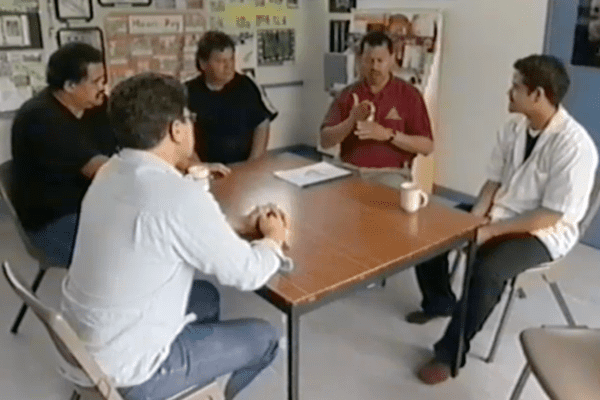
2004
video – Taonga source: Rūaumoko Komiti
The Māori Deaf world: Interviews with Whiti Ronaki, Stephanie Awheto and Michael Wi
This raw, edited footage consists of interviews with Whiti Ronaki, Michael Wi and Stephanie Awheto - a trilingual interpreter, on topics relevant in the Māori Deaf world.

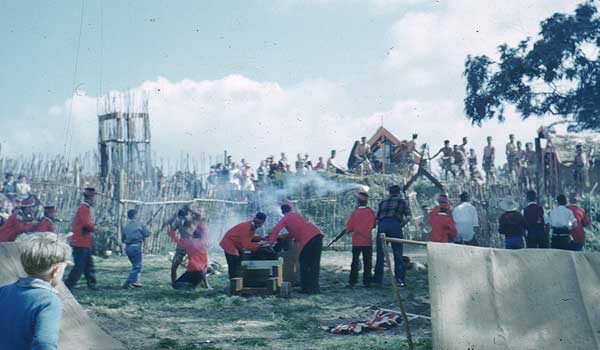
1959
video – Taonga source: Auckland Deaf Society
Te Pakanga O Whau – The Battle of Whau: Drama by Kelston School for the Deaf
The Battle of Whau: a drama by Kelston Deaf students for the opening ceremony of Kelston School for the Deaf, 7th November 1959.
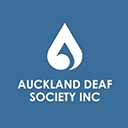
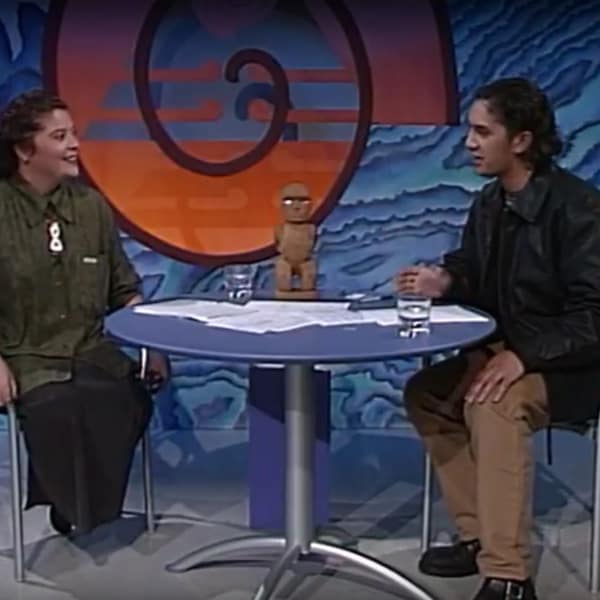
1997
video – Taonga source: Television New Zealand Archive
A korero with Riwia Fox, Māori NZSL interpreter
Riwia Fox, an interpreter is interviewed about her work as a trilingual interpreter. At that time, Riwia was one of only two qualified NZSL interpreters in New Zealand who are Māori, with the other being Stephanie Awheto.


2001
video – Taonga source: Rūaumoko Komiti
Māori Deaf Wānanga
Wānanga held in 2001, involving both Deaf and hearing Māori, focusing on NZSL skills, learning about community and culture as well as socialising and having fun.

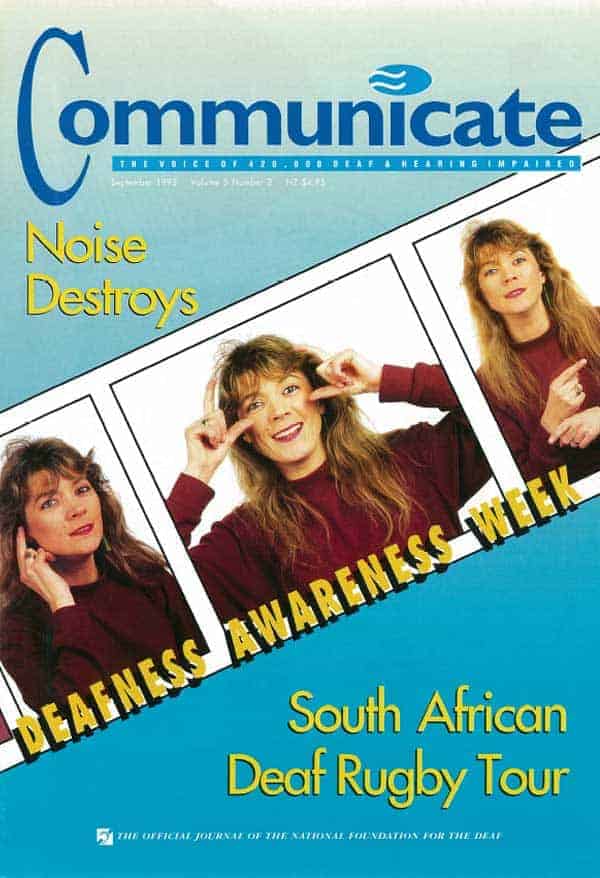
1995
publication – Taonga source: National Foundation for Deaf and Hard of Hearing
NFD Communicate: September 1995

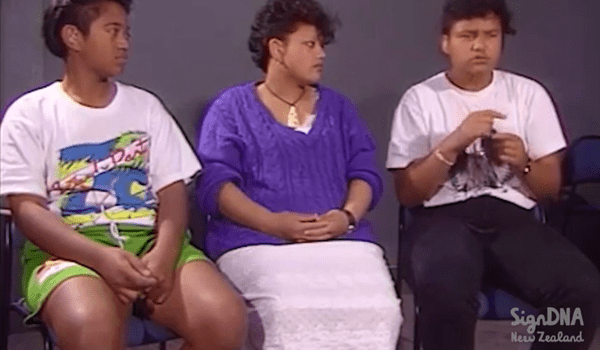
1991
video – Taonga source: Television New Zealand Archive
Māori Deaf and Deaf education
A look at the cultural education needs of Māori Deaf students. Māori Deaf are likely to experience more barriers in the education sector. Interviews undertaken by ‘Marae’ shows us that the multiple cultural identities of Māori Deaf are not completely accommodated for with aspirations on how to resolve this.


2005
video – Taonga source: AUT Visual Languages Section
Toa Anga Whati Māori
Māori TV's 'Toa Anga Whati Māori' profiles the Deaf Association of New Zealand on its weekly program, interviewing a series of Deaf people in sports (golf, touch rugby, rugby) before touching upon the job of a Deaf Awareness Officer who delivers training throughout New Zealand.
